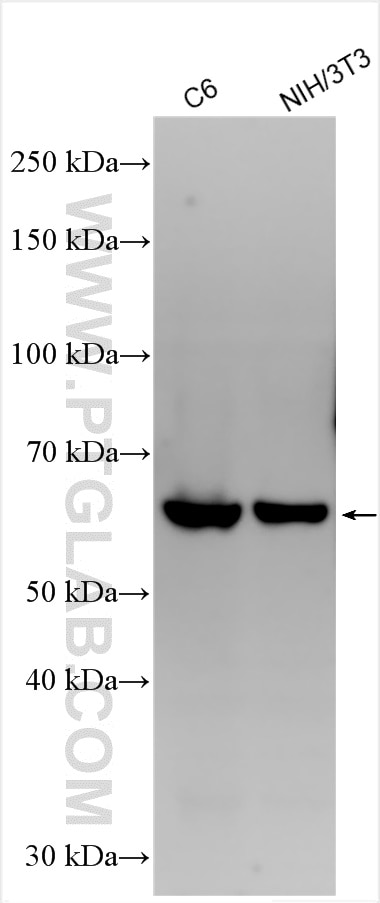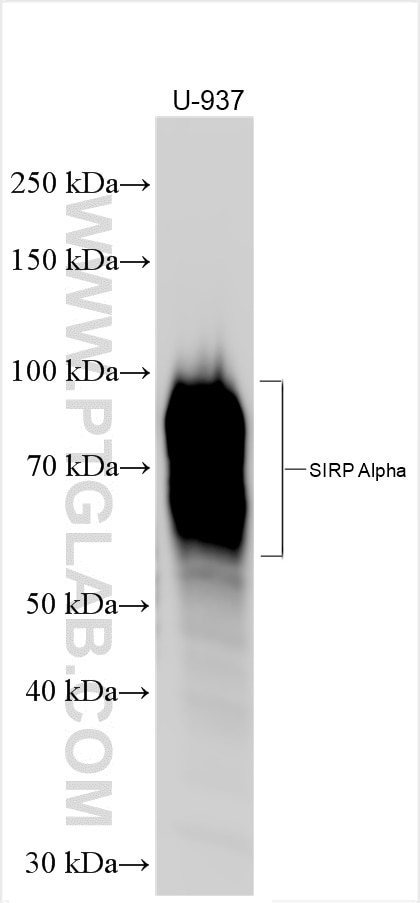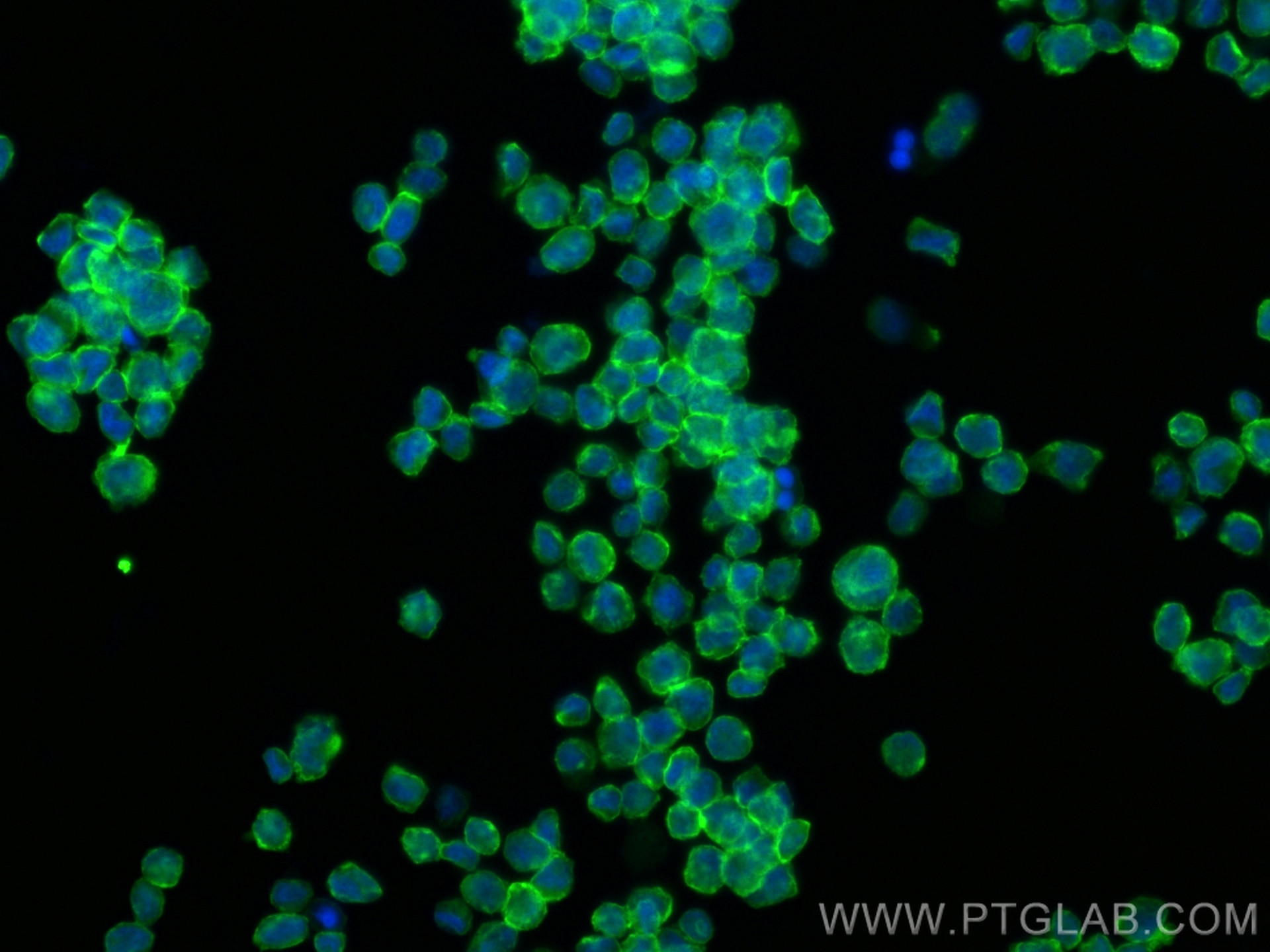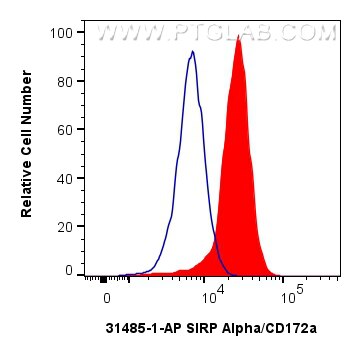Tested Applications
| Positive WB detected in | C6 cells, NIH/3T3 cells, U-937 cells |
| Positive IF/ICC detected in | THP-1 cells |
| Positive FC (Intra) detected in | THP-1 cells |
Recommended dilution
| Application | Dilution |
|---|---|
| Western Blot (WB) | WB : 1:500-1:3000 |
| Immunofluorescence (IF)/ICC | IF/ICC : 1:50-1:500 |
| Flow Cytometry (FC) (INTRA) | FC (INTRA) : 0.25 ug per 10^6 cells in a 100 µl suspension |
| It is recommended that this reagent should be titrated in each testing system to obtain optimal results. | |
| Sample-dependent, Check data in validation data gallery. | |
Product Information
31485-1-AP targets SIRP Alpha/CD172a in WB, IF/ICC, FC (Intra), ELISA applications and shows reactivity with human, mouse, rat samples.
| Tested Reactivity | human, mouse, rat |
| Host / Isotype | Rabbit / IgG |
| Class | Polyclonal |
| Type | Antibody |
| Immunogen | Recombinant protein Predict reactive species |
| Full Name | signal-regulatory protein alpha |
| Calculated Molecular Weight | 55 kDa |
| Observed Molecular Weight | 65-100 kDa |
| GenBank Accession Number | NM_080792 |
| Gene Symbol | SIRP Alpha |
| Gene ID (NCBI) | 140885 |
| RRID | AB_3670002 |
| Conjugate | Unconjugated |
| Form | Liquid |
| Purification Method | Antigen affinity Purification |
| UNIPROT ID | P78324 |
| Storage Buffer | PBS with 0.02% sodium azide and 50% glycerol, pH 7.3. |
| Storage Conditions | Store at -20°C. Stable for one year after shipment. Aliquoting is unnecessary for -20oC storage. 20ul sizes contain 0.1% BSA. |
Background Information
SIRP Alpha, also known as CD172a, SHPS-1, and BIT, belongs to the SIRP family. SIRP Alpha is a transmembrane glycoprotein expressed explicitly on myeloid cells and provides a "do not eat me" signal after engaging with integrin-associated protein CD47 on tumor cells (PMID: 36419386). SIRP Alpha shows heterogeneity in molecular weight (~65-120 kDa) in various tissues due to differential glycosylation (PMID: 18051954).
Protocols
| Product Specific Protocols | |
|---|---|
| WB protocol for SIRP Alpha/CD172a antibody 31485-1-AP | Download protocol |
| IF protocol for SIRP Alpha/CD172a antibody 31485-1-AP | Download protocol |
| Standard Protocols | |
|---|---|
| Click here to view our Standard Protocols |









